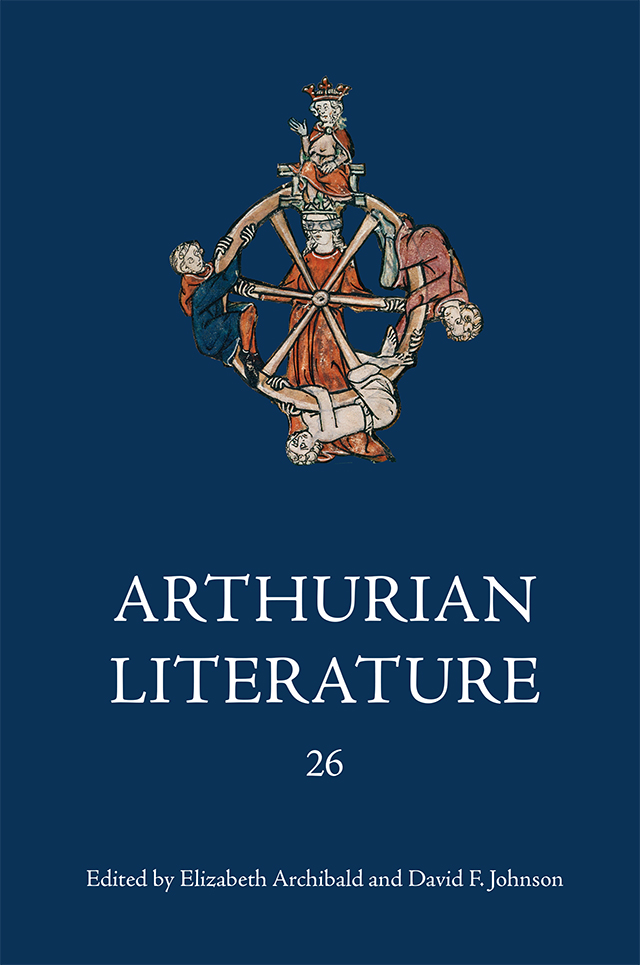Book contents
- Frontmatter
- Contents
- General Editors’ Foreword
- Contributors
- Introduction to The Morte Darthur, Parts 7 and 8
- Malory’s Text of the Suite du Merlin
- Why Arthur at All? The Dubious Arthuricity of Arthur and Gorlagon
- The Aesthetics of Communication: Sterility and Fertility in the Conte del Graal Cycle
- ‘Whyche Thyng Semeth Not to Agree With Other Histories ...’: Rome in Geoffrey of Monmouth and his Early Modern Readers
- Arthurian Texts in their Historical and Social Context
- The Post-Christian Arthur
- The Arthurian Legend in Literature, Popular Culture and the Performing Arts, 2004–2008
Why Arthur at All? The Dubious Arthuricity of Arthur and Gorlagon
Published online by Cambridge University Press: 02 March 2023
- Frontmatter
- Contents
- General Editors’ Foreword
- Contributors
- Introduction to The Morte Darthur, Parts 7 and 8
- Malory’s Text of the Suite du Merlin
- Why Arthur at All? The Dubious Arthuricity of Arthur and Gorlagon
- The Aesthetics of Communication: Sterility and Fertility in the Conte del Graal Cycle
- ‘Whyche Thyng Semeth Not to Agree With Other Histories ...’: Rome in Geoffrey of Monmouth and his Early Modern Readers
- Arthurian Texts in their Historical and Social Context
- The Post-Christian Arthur
- The Arthurian Legend in Literature, Popular Culture and the Performing Arts, 2004–2008
Summary
The story of a knight who changes into a wolf and is trapped in wolf form by a perfidious woman, most often the knight's wife, occurs in several medieval texts. Probably the best known of these is Marie de France’s narrative lay, Bisclavret. However, in presenting a ‘natural’ werewolf, that is, a man who by nature periodically changes into wolf form, Marie’s tale differs from the other narratives, except for Biclarel, which is closely modelled on it. The other versions concern a knight whose lycanthropic transformation is not a naturally occurring periodical event, but instead is induced by enchantment, involving a magical item, such as a ring or potion, or a spell, or a combination of these. In Marie's tale, and in Biclarel, it is the theft of the knight's clothes that traps him in his lupine shape.
Three medieval werewolf redactions include Arthurian material. Two of these are in Old French octosyllabic couplets. One is Biclarel, which, while following Bisclavret fairly closely in the details of its plot, recasts the knight's feudal lord as Arthur, so that it is Arthur himself who protects the supplicant wolf and oversees his transformation back into human form. However, the Arthurianization is minimal: Arthur is mentioned by name on only four occasions and no other Arthurian names occur in the text. The other Old French version, the narrative lay Melion, tells of a knight trapped in wolf form by his wife, using a ring with magic stones. Here, the werewolf's tale is fully integrated into the Arthurian world. Melion is Arthur's vassal, and Arthur is the king who protects the wolf and oversees the démorphose. Other Arthurian knights are mentioned, and Gawain has an active role in insisting that the wolf Melion be taken to a chamber to ensure privacy when he changes back into human form. The latter part of the narrative takes place in Ireland, and the text gives a plausible political reason for Arthur to journey to the Irish king's court.
The third werewolf tale set in the Arthurian world is the Latin prose Arthur and Gorlagon. While there are parallels between this text and Bisclavret and Melion, the narrative diverges from these versions in numerous ways.
- Type
- Chapter
- Information
- Arthurian Literature , pp. 77 - 96Publisher: Boydell & BrewerPrint publication year: 2009
- 1
- Cited by



